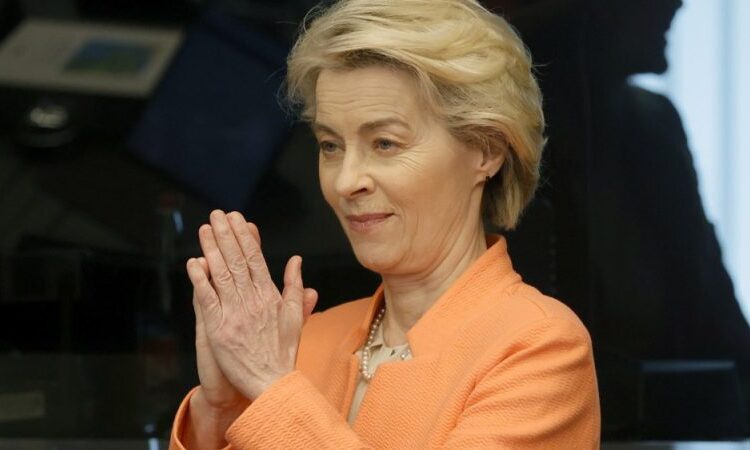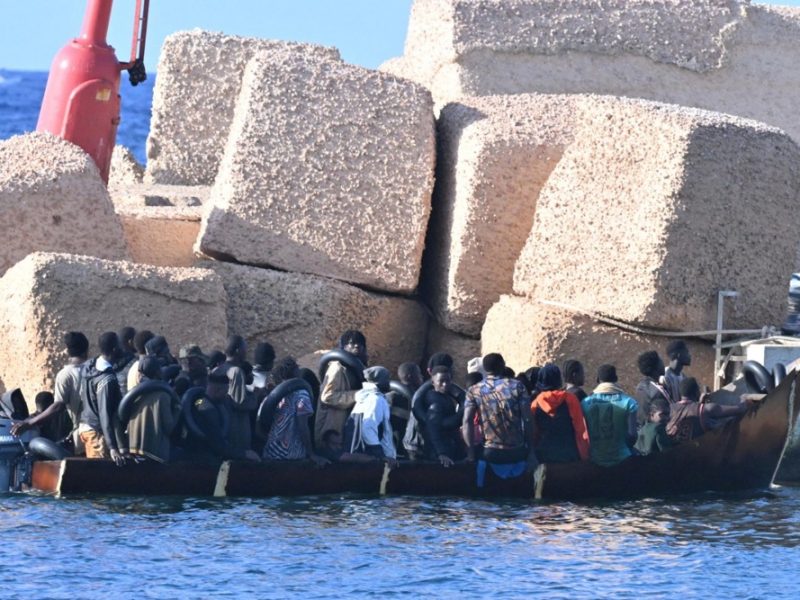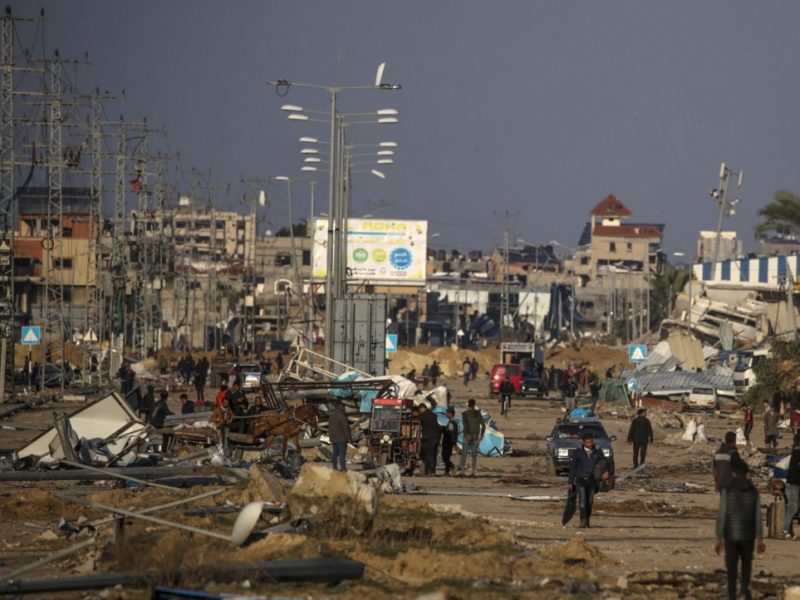
The EU is set to seal a highly sensitive and strategic deal worth up to €8 billion with Egypt on Sunday (17 March), continuing its strategy of investing in the countries of origin or transit of migration flows.
The €4-8 billion deal comes after the EU signed a similar agreement with Tunisia, billed as “cash for migrants”, as the question of how best to handle migration will be at the forefront of the campaign for June’s EU elections.
While the deal’s approach might be compared to Tunisia, Egypt is considered a more sensitive ‘strategic partner’ by the EU, given its 107 million inhabitants and its proximity to unstable areas such as the Gaza Strip, the Suez Canal, and neighbouring Sudan, currently engulfed in a civil war.
This agreement will have support from multi-billion lenders, international financial institutions, the European Investment Bank (EIB), and the European Bank for Reconstruction and Development (EBRD), a source close to the negotiations told Euractiv.
The EU aims to invest in a wide range of sectors, including migration, the green transition, and food insecurity, in continuity with previous projects the Commission is already implementing in the North African country.
In one previous project, the EU allocated €110 million for migration management for seven years, a source close to the matter told Euractiv.
As evidence of the highly political nature of the deal, the European Commission President Ursula von der Leyen will travel to Egypt to seal the deal along with three prime ministers, Alexander De Croo of Belgium (Renew), Kyriakos Mitsotakis of Greece (EPP), and Giorgia Meloni of Italy (ECR).
The EU is not the only partner to agree on major grants and loans to Egypt in recent weeks. In early March, the International Monetary Fund (IMF) agreed to a further $3 billion, and the United Emirates promised $35 billion in investments in the Ras El Hekma peninsula.
Human rights concerns
“Von der Leyen’s ‘blueprint’ hits again: while people attempt to flee from oppression, Europe rewards the oppressors for trapping them in,” Human Rights Watch associate director Claudio Francavilla told Euractiv.
“Without human rights reforms to set up checks and balances on the military’s absolute power, the EU and others flooding Egypt’s corrupt and abusive leaders with money are only kicking the can down the road until the next economic crisis erupts,” he added.
Timothy E. Kaldas, deputy director of the Tahrir Institute for Middle East Policy, told Euractiv that “political decisions and political practices of the regime play a central role in why Egypt’s economy is the way that it is” – for instance, with the government controlling the private sector with state-owned enterprises.
The 2023 migration report from the EU Asylum Agency (EUAA) showed that many Egyptians are leaving the country due to the deteriorating economic and political situation. Many go to Libya, where they continue to Europe along irregular routes.
Migration
Migration is part of the deal, following up on the border management projects the EU is already investing in with Egyptian authorities.
These funds are dedicated to increasing the operation capacity of the Egyptian navy and border guards for border surveillance and search and rescue operations at sea.
Among the development partners of a previous project is the French Ministry of Interior through its operational arm Civipol, which will deliver three search and rescue boats to Egypt in 2024, despite no major departure flows from the country since 2016, an EU Asylum Agency report shows.
The UN Agency for Migration (IOM) is also among the already engaged development partners and is working on training and capacity building of Egyptian authorities.
“With these EU funds, IOM is supporting Egyptian authorities through capacity building activities which promote rights-based border management and the respect of international law and standards, also about search and rescue operations,” an official source from IOM told Euractiv.
[Edited by Aurélie Pugnet/Alice Taylor]









